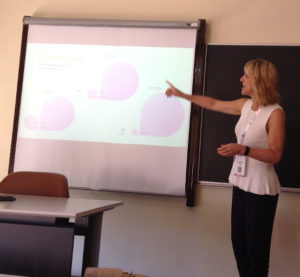Dr. Buxarrais was invited as a keynote speaker at the 4th International Conference on Civil Engineering Education:Challenges for the Third Millennium, organised by the Escola de Camins (Department of Civil and Environmental Engineering) of the Universitat Politècnica de Catalunya (UPC BarcelonaTech), and EUCEET (European Civil Engineering Education and Training) Association from the 5th to the 8th of September.
The conference was entitled “Ethical competencies in Higher Education” and the abstract can be read next:
Higher Education encompasses three interconnected dimensions:
- A dimension related with the construction and transmission of the scientific, technical, cultural and humanistic knowledge.
- A political and social dimension linked to the implication in the society and in the democratic principles development.
- An ethical dimension bound together with and activity compromised with the justice, the people’s and communities’ dignity and human rights.
Since Higher Education must train competent professionals who are to analyse their own practises, we will consider the third dimension. Furthermore, they must be able to evaluate their actions, their perceptions, their beliefs and their thoughts, not only as professionals in their field of knowledge but as compromised citizens as well. Thus, the training of the ethical competence is necessary to develop ability of reflection, analysing and the taking of a post. Here we are going to ask ourselves questions related to the teacher practises and the ethical learning in the higher education.







